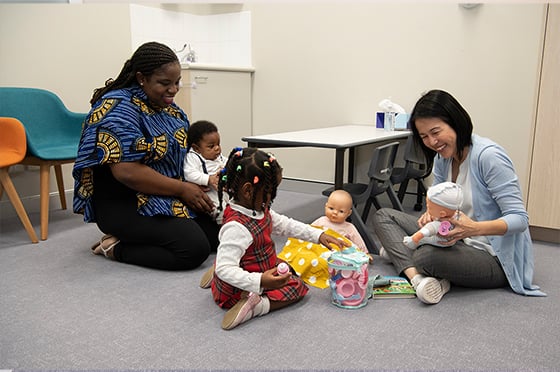Search
Research
An investigation of adherence to best practice guidelines for autism diagnosis in New ZealandMany clinicians in New Zealand do not follow guidelines for best practice in autism diagnosis. In this study, we investigated the processes that health professionals in New Zealand follow when diagnosing autistic children and adults. We asked 117 health professionals from a range of services and regions in New Zealand, how they identify and diagnose autism.
Research
Potential role for immune-related genes in autism spectrum disorders: Evidence from genome-wide association meta-analysis of autistic traitsAutism spectrum disorders are complex, with a strong genetic basis. Genetic research in autism spectrum disorders is limited by the fact that these disorders are largely heterogeneous so that patients are variable in their clinical presentations. To address this limitation, we investigated the genetics of individual dimensions of the autism spectrum disorder phenotypes, or autistic-like traits. These autistic-like traits are continuous variations in autistic behaviours that occur in the general population.
Research
Caregiver Psychological Distress Predicts Temperament and Social-Emotional Outcomes in Infants with Autism TraitsChild temperament and caregiver psychological distress have been independently associated with social-emotional difficulties among individuals with autism. However, the interrelationship among these risk factors has rarely been investigated.
Research
Analysis of common genetic variation and rare CNVs in the Australian Autism BiobankAutism spectrum disorder (ASD) is a complex neurodevelopmental condition whose biological basis is yet to be elucidated. The Australian Autism Biobank (AAB) is an initiative of the Cooperative Research Centre for Living with Autism (Autism CRC) to establish an Australian resource of biospecimens, phenotypes and genomic data for research on autism.
Research
The first six months of life: A systematic review of early markers associated with later autismThere is now good evidence that behavioural signs of autism spectrum conditions (autism) emerge over the first two years of life. Identifying clear developmental differences early in life may facilitate earlier identification and intervention that can promote longer-term quality of life. Here we present a systematic review of studies investigating behavioural markers of later autism diagnosis or symptomology taken at 0-6 months.


Find out more about Psychology services at CliniKids.

Consultation appointments are one-off clinical appointments to discuss the best next steps for supporting children’s strengths and support needs. These sessions are available for families and professionals.

This small group program helps children crack the code of emotions and friendships through an animated ‘secret agent’ theme.
The Kids Research Institute Australia is involved in a new multi-site Australian study, led by the South Australian Health and Medical Research Institute, which wants to determine the optimal level of iodine needed during pregnancy for baby’s development.
